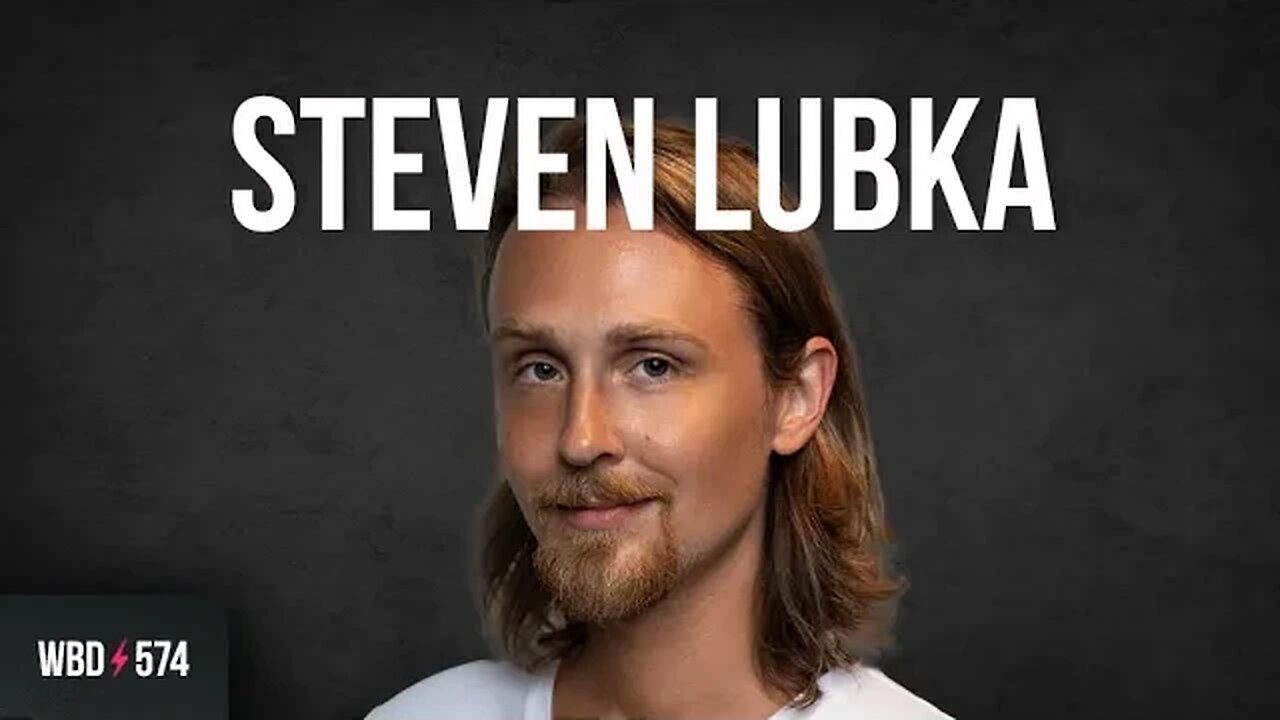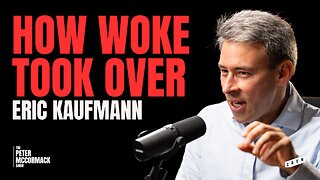Premium Only Content

How Capital Misallocation Warps Money with Steven Lubka
SHOW NOTES:
https://www.whatbitcoindid.com/podcast/how-capital-misallocation-warps-money
Steven Lubka is Managing Director of Private Client Services at Swan Bitcoin. In this interview, we discuss how the misallocation of money by central banks distorts money, destroys capital, and creates zombie companies. Steven calls for money to be left to find its natural state within a free market.
THIS EPISODE’S SPONSORS:
Gemini - https://www.gemini.com/
Wasabi- https://www.wasabiwallet.io/
Ledn - https://www.ledn.io/
Pacific Bitcoin - http://pacificbitcoin.la/
Ledger - https://www.ledger.com/
Texas Blockchain Summit - https://www.texasblockchainsummit.org/
BCB Group - https://hubs.ly/Q011cb730
TIMESTAMPS:
00:00:00 The Forrest Gump of Bitcoin
00:04:26 Misallocation of capital: what is wrong is money
00:10:44 Call to action - fundraising for the Bitcoin Policy Institute
00:16:53 Interest rates & monetary distortion
00:24:42 Capital & prices coordinate society
00:34:06 The distortion of money by central banks
00:44:15 The damage of artificial interest rates
00:54:43 Zombie firms; creative destruction; a Bitcoin world
01:05:44 The importance of capital
WHERE TO FIND THE SHOW:
→ My website: https://www.whatbitcoindid.com/podcast/
→ iTunes: https://apple.co/2OOlzVV
→ Spotify: https://spoti.fi/2ygc4W1
→ Stitcher: https://bit.ly/2IQO8fX
→ SoundCloud: https://bit.ly/2CGSVQR
→ YouTube: https://bit.ly/3nyi9Ez
→ TuneIn: https://bit.ly/2ywystr
LISTEN TO OLD EPISODES:
→ By guest: https://www.whatbitcoindid.com/guests/
→ By topic: https://www.whatbitcoindid.com/topics/
→ Transcriptions: https://www.whatbitcoindid.com/transcriptions/
SUPPORT THE SHOW:
→ https://www.whatbitcoindid.com/sponsorship/
→ Become a Patron: https://www.patreon.com/whatbitcoindid/
→ Subscribe on iTunes
→ Leave a review on iTunes
→ Share the show out with your friends and family on social media
→ Drop me a line on hello@whatbitcoindid.com
WHERE TO FOLLOW ME:
→ Twitter: https://twitter.com/whatbitcoindid/
→ Medium: https://medium.com/@whatbitcoindid/
→ Instagram: http://instagram.com/whatbitcoindid/
→ Facebook: https://www.facebook.com/whatbitcoindid/
→ YouTube: https://www.youtube.com/whatbitcoindidpodcast
→ Website: https://www.whatbitcoindid.com/
→ Email list: https://www.whatbitcoindid.com/subscribe/
LEARN ABOUT BITCOIN:
→ Step by Step Guide: https://www.whatbitcoindid.com/beginners-guide
→ Training: https://www.whatbitcoindid.com/training/
→ Resources: https://www.whatbitcoindid.com/resources/
#Bitcoin #Finance #Economics
****
“If everyone uses a 12-inch ruler to build a house, and then one day, the government wakes up, and they change out all the rulers for an 11-inch ruler, but they don’t tell anybody…that distorts everything in the system because you’re using that as a measure, and the same thing happens with money.”
— Steven Lubka
- - - -
Society has become accustomed to the intervention of central banks in the economy. The underlying narrative is that central banks have the power to direct the economy through the manipulation of money. A principle level is through the control of interest rates: artificial adjustments to the cost of borrowing money aimed at promoting or tempering growth.
You don’t have to be an economics expert though to know that central banks' interventions seem to have become excessive. We have had a decade of near-zero interest rates. In addition to this, central banks have heavily lent on money printing to maintain economic stability: one-fifth of all US dollars were printed in 2020 alone.
These significant adjustments to the money supply set in train damaging second-order impacts. Given rising debt levels and recessionary forces, governments are seeking ways to stimulate growth. However, the economy has not been allowed to function normally for an extended period. We may therefore be in a position where significant businesses aren’t able to operate with a more natural cost of money.
Many businesses have developed in a period where the cost of money has been artificially low. This has created zombie companies, which need support to survive. This leads to a cascading series of issues: such companies divert resources from more efficient enterprises, but they are destined to fail, which destroys capital. It effectively hollows out parts of the economy.
The misallocation of capital is therefore counterproductive: short-term stability is a mirage that hides long-term systemic vulnerability. Steven Lubka’s thesis is that Bitcoin is the answer. It is a real tangible asset with a fixed monetary policy that enables price to be reflective of reality. The result is a market that can make rational decisions, build robust companies, and allow order to emerge In short, Bitcoin fixes the money.
-
 1:57:40
1:57:40
The Peter McCormack Show
8 days agoHow Wokeness Hijacked the West | Eric Kaufmann x The Peter McCormack Show
1471 -
 1:27:59
1:27:59
Kim Iversen
11 hours agoRFK Jr Declares No More Cheetos on Welfare? | Yale Confirms Long Covid Is Actually Vaccine Injury!
101K112 -
 1:08:43
1:08:43
The Charlie Kirk Show
8 hours agoTHOUGHTCRIME Ep. 74 — Charlie's Campus Return? Robo-Butlers? Garden of American Heroes?
87.1K18 -
 1:09:53
1:09:53
Slightly Offensive
9 hours ago $7.59 earnedIs the US Headed for MORE WAR Under TRUMP? | Guest: Scott Horton
51.3K12 -
 58:29
58:29
The StoneZONE with Roger Stone
8 hours agoRoger Stone Hails Confirmation of Kash Patel, Trashes Schiff for Attacks On Patel | The StoneZONE
57.7K20 -
 48:44
48:44
Man in America
13 hours agoA MASSIVE Global Financial Reset Is Coming—Are You Ready?
45.3K21 -
 1:15:42
1:15:42
Precision Rifle Network
1 day agoS4E5 Guns & Grub - The Best Rifle Under $2000
77.9K7 -
 1:02:54
1:02:54
Glenn Greenwald
1 day agoSouth Korean Economist Ha-Joon Chang on the Economic World Order, Trump's Tariffs, China & More | SYSTEM UPDATE #410
94.3K51 -
 1:02:27
1:02:27
Donald Trump Jr.
13 hours agoBye Mitch, plus Kash confirmed, Interview with AJ Rice | Triggered Ep.218
138K77 -
 1:12:27
1:12:27
The Amber May Show
15 hours ago $3.52 earnedWomen Of Rumble 02-20-25
40.8K8